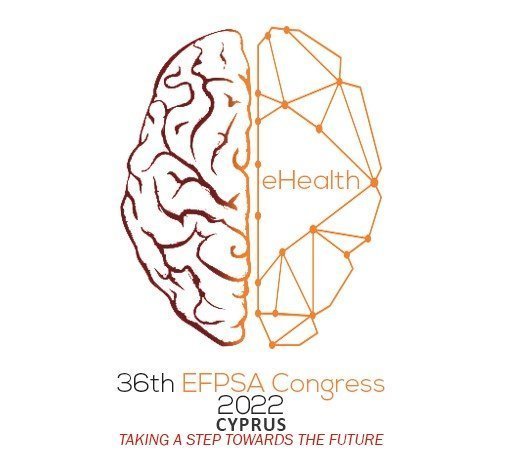The CYENS Centre of Excellence participated at the 36th EFPSA – European Federation of Psychology Students’ Associations Congress, on Tuesday 13th and Thursday 14th of April, 2022. This year’s theme was E-health: Taking a Step Towards the Future.
Digitalisation has been becoming part of our daily life over the past century. As a result, new concepts have been developed such as “digital well-being”. It is defined as the capacity to look after personal health, safety, relationships and work-life balance in digital settings. In line with these developments, “a Europe fit for the digital age” has been defined as one of the six political priorities of the Commission 2019-2024. One of the important implications of digitalisation is the health care-systems is increasing up-take of digital psychological interventions and mobile applications as standalone and/or an addition to the face-to-face counterparts in treatment of common mental health conditions such as depression and anxiety symptoms.
Presentations from CYENS included that of:
- Dr Kleanthis Neokleous on Virtual Reality Interventions for Healthcare.
An overview of how emerging technologies and particularly virtual and augmented reality are being used in healthcare for medical training and education, patients’ treatment and disease awareness will be presented. Examples from past and ongoing related projects will be presented together with concluding thoughts regarding the future development of systems, integrating novelties from emerging technologies in healthcare.
- Dr Eirini Schiza on the eHealth ecosystem and Dr. Marios Avraamides on Immersive Virtual Reality applications
Description: Basic and applied research efforts are directed towards empowering patients to become co-managers of their own health facilitating smart personalised interventions including mHealth and serious games applications for rehabilitation, chronic disease management, and healthy ageing, building on augmented and mixed reality applications, capitalizing near real-time cloud-based Electronic Health Record (EHR) data. Recent advances in immersive Virtual Reality (VR) technologies provide new methods and tools for the development of novel and promising applications mainly for neurological and cancer rehabilitation. VR interventions have several advantages and are rapidly gaining ground as popular applications for different disease conditions. In addition, immersive VR applications are co-designed and implemented in medical and healthcare education and training. This will enhance the educational experience through contextualized, technology driven and enjoyable learning. Medical students and health professionals will be able to adopt these applications and improve their skills and competences
through flexible personalized learning, while the teaching staff will enhance their e-learning tool co-creation competences and make use of co-design best practices and recommendations for use.



